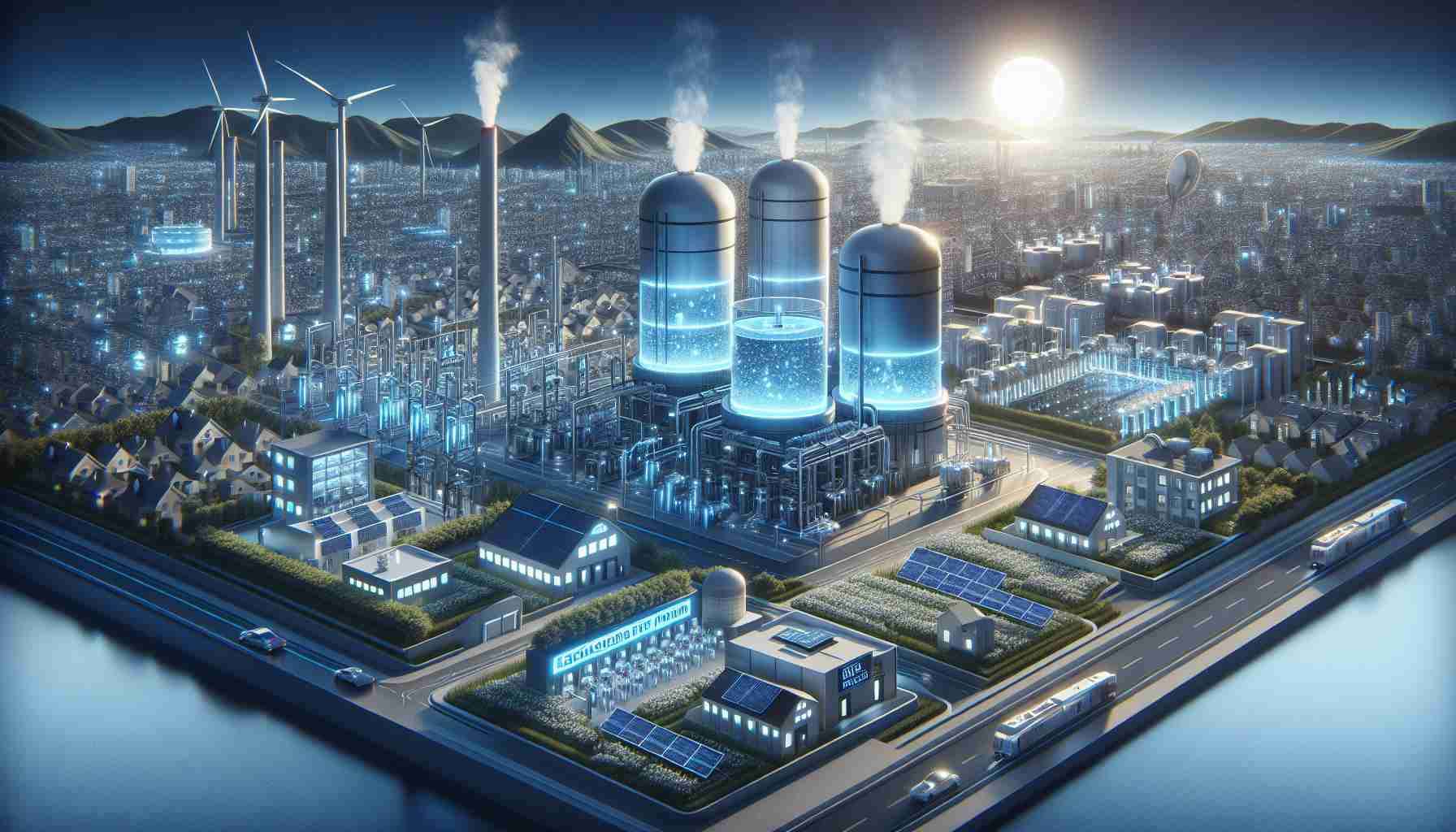As the UK aims for a greener energy landscape, the focus on hydrogen production is becoming increasingly significant. While large centralized power facilities are often thought of as the backbone of energy production due to their potential for economies of scale, they are not without their complications, including high costs and infrastructural hurdles.
A paradigm shift towards smaller, localized hydrogen production facilities could provide an innovative solution to these challenges. These micro power plants can be established rapidly, requiring less sophisticated planning and minimizing the need for extensive transportation networks. Their reduced footprint allows them to be integrated more easily into existing urban or rural areas, providing quicker access to hydrogen fuel where it is needed most.
Micro plants also have environmental advantages; when coupled with renewable sources such as solar or wind, they can further decrease carbon emissions. For example, utilizing waste biomass through processes like biomass gasification offers an efficient route to produce low-carbon hydrogen alongside useful byproducts like heat and power.
Beyond environmental benefits, local hydrogen production can invigorate communities by fostering job creation and attracting investment. This decentralization not only makes hydrogen more accessible but also supports energy independence for local industries and can even empower remote communities. With such potential, the establishment of micro hydrogen facilities presents a vital opportunity for the UK to enhance its energy strategy and contribute significantly to global net-zero goals.
FAQ Section
1. What is the current focus of the UK in terms of energy production?
The UK is aiming for a greener energy landscape, with a significant focus on hydrogen production as a sustainable energy source.
2. What are some challenges associated with large centralized power facilities?
Large centralized power facilities face complications such as high costs, infrastructural hurdles, and the requirement for extensive transportation networks.
3. How could smaller, localized hydrogen production facilities benefit the energy sector?
Smaller, localized hydrogen production facilities, or micro power plants, can be established more rapidly, require less complex planning, and integrate easily into existing communities, providing quicker access to hydrogen fuel.
4. What environmental advantages do micro hydrogen plants offer?
When paired with renewable energy sources like solar or wind, micro hydrogen plants can significantly reduce carbon emissions and can utilize waste biomass to produce low-carbon hydrogen, alongside useful byproducts such as heat and power.
5. How can local hydrogen production impact communities?
Local hydrogen production can create job opportunities, attract investments, and promote energy independence for local industries, ultimately empowering remote communities.
6. Why is the establishment of micro hydrogen facilities important for the UK?
The development of micro hydrogen facilities represents a crucial opportunity for the UK to enhance its energy strategy and contribute to global net-zero goals.
Key Terms and Jargon
– Hydrogen Production: The process of generating hydrogen, often viewed as a clean energy source capable of reducing greenhouse gas emissions.
– Micro Power Plants: Smaller-scale energy production facilities that can be rapidly established and integrated into local systems, offering flexible and localized energy solutions.
– Biomass Gasification: A process that converts organic materials (like plant matter) into gas, which can be used to produce low-carbon hydrogen.
– Decentralization: The distribution of energy production away from large, centralized facilities to smaller, localized units.
Related Links
UK Government
U.S. Department of Energy
IHS Markit
